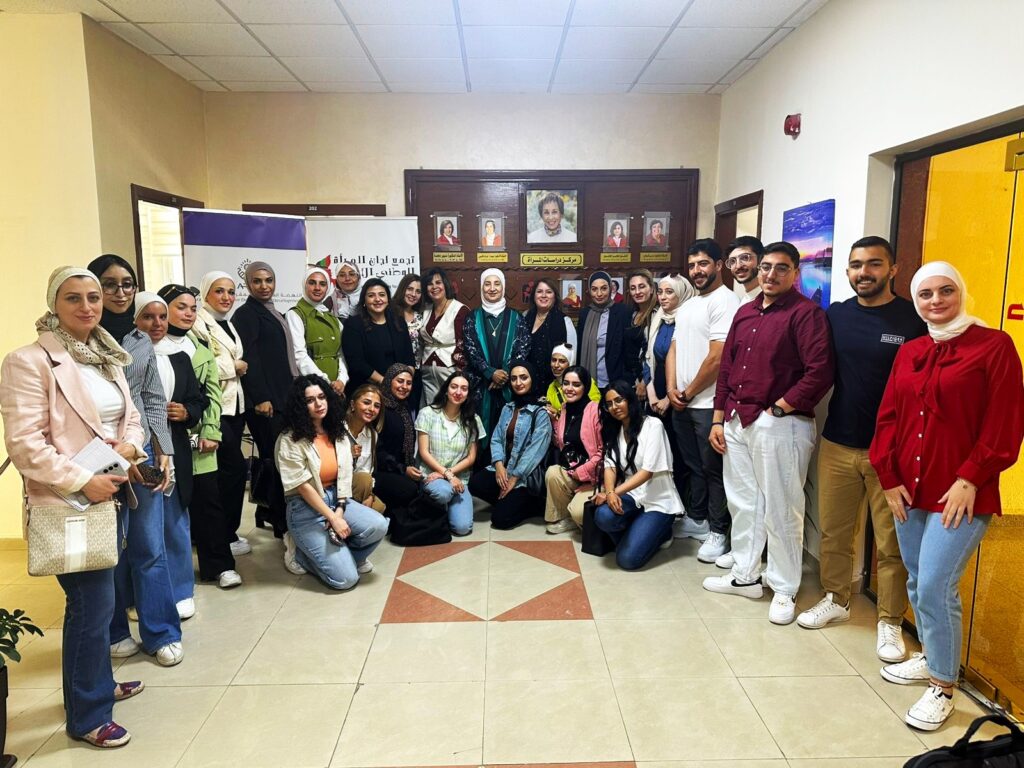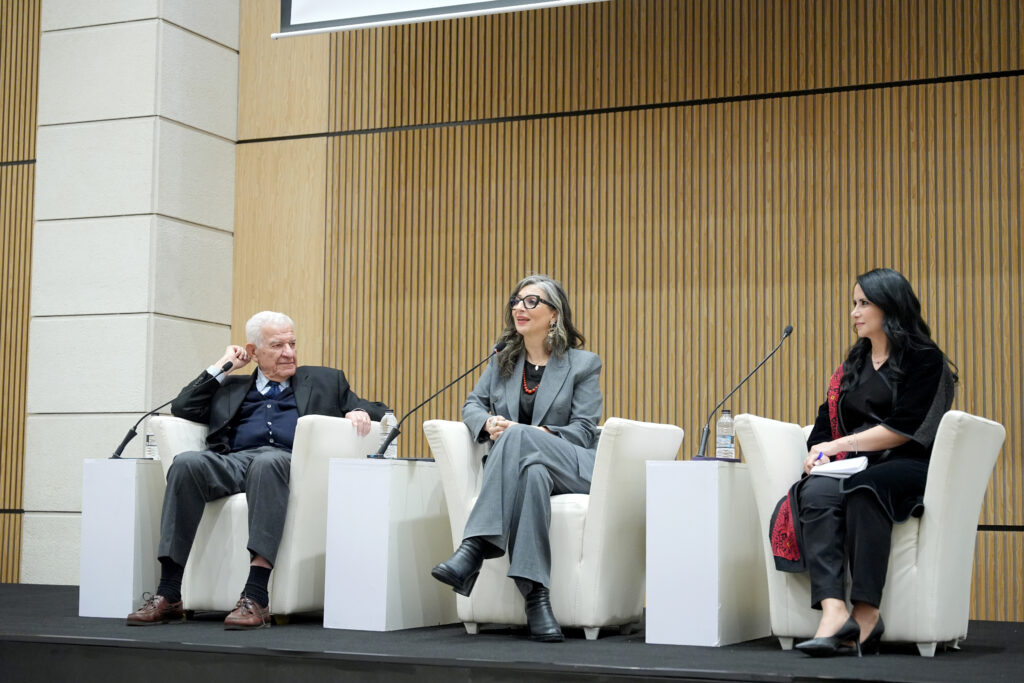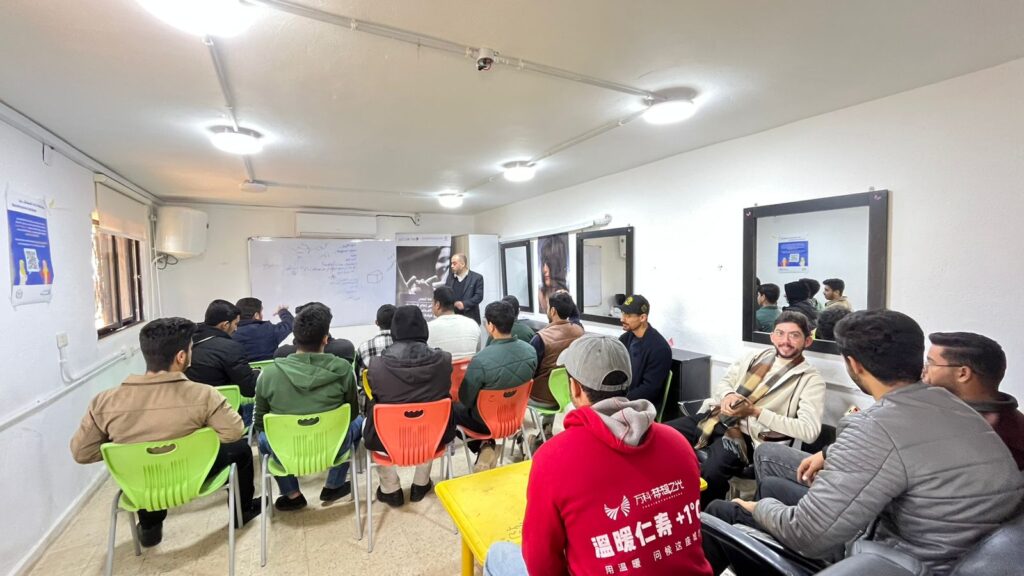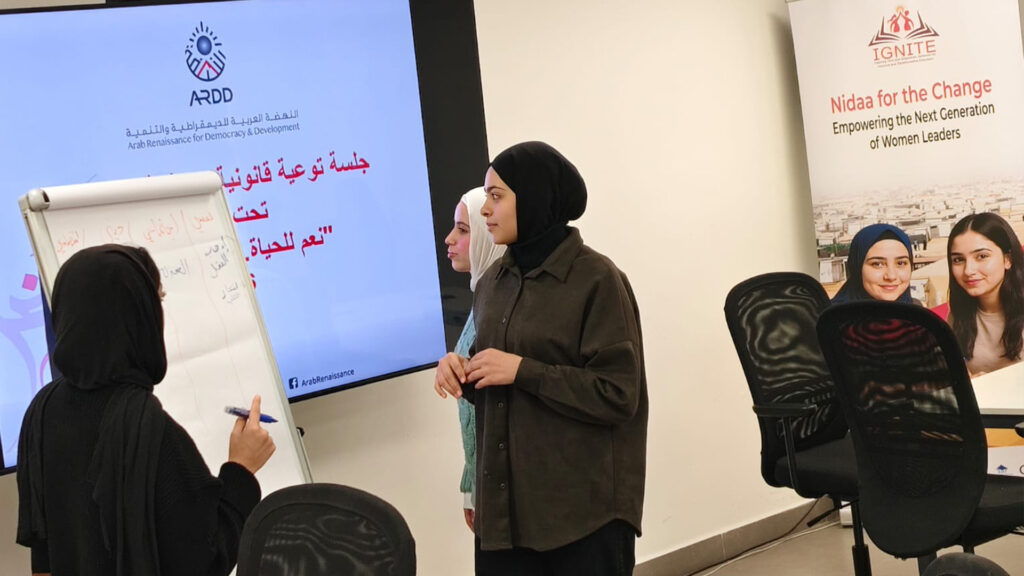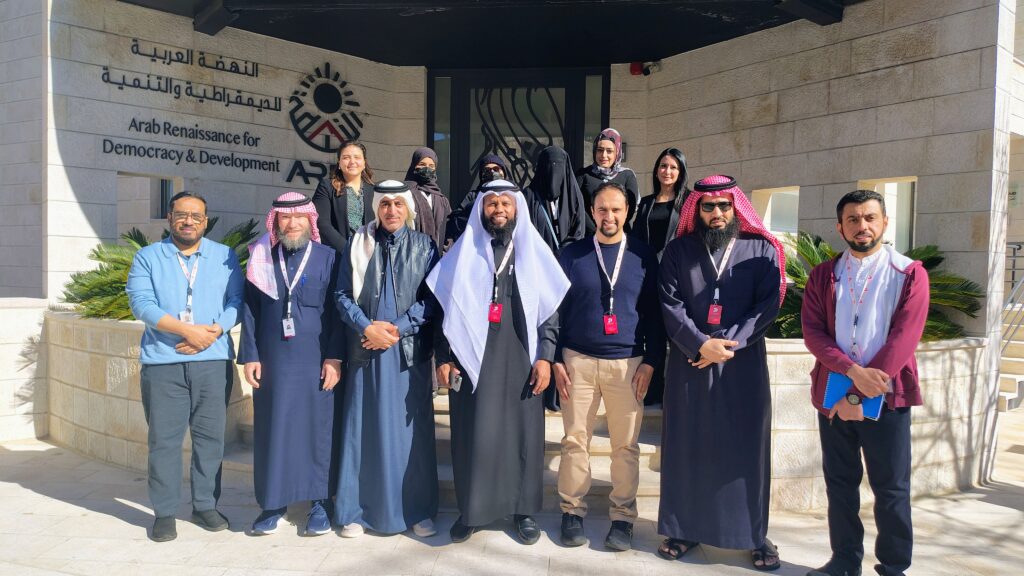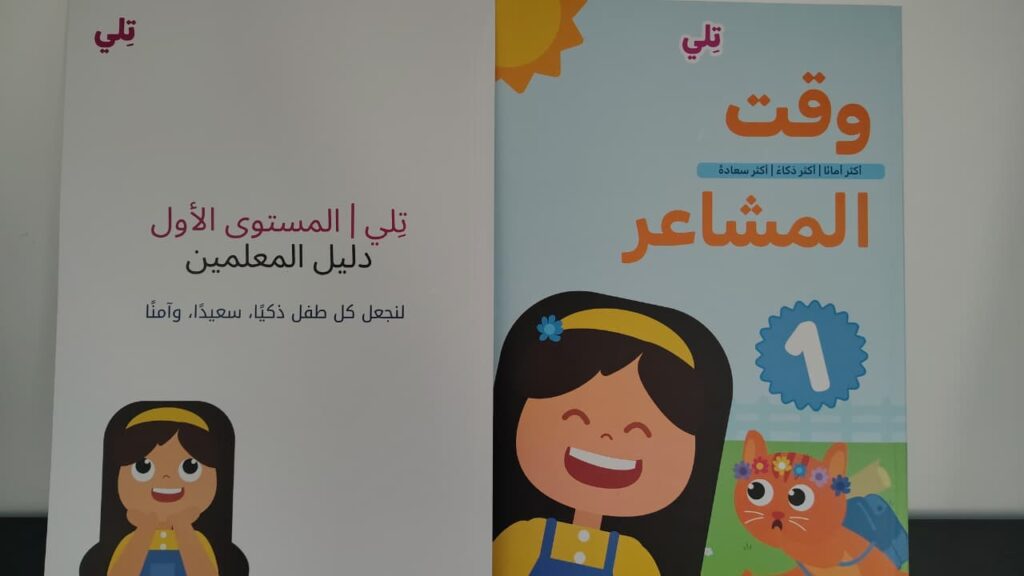As part of the She Leads program, and in collaboration with the Jordanian National Commission for Women and the Center for Women’s Studies at the University of Jordan, a lecture titled “Women’s Participation in Political Life and Electoral Violence Against Women” was held on Tuesday, May 13, 2025. The lecture was delivered by Dr. Jumana Al-Dahamsha, Head of the Women’s Empowerment Unit at the Ministry of Political and Parliamentary Affairs.
Designed as part of the advocacy plan developed by participants in the She Leads program with the support and supervision of ARDD, the lecture showcased the current political realities faced by Jordanian women, the various forms of electoral violence they encounter, and strategies for overcoming these challenges.
Dr. Al-Dahamsha explained that electoral violence against women encompasses any form of violence, pressure, or discrimination women face due to their participation in the electoral process, whether as voters, candidates, or campaign workers. She noted that this violence takes many forms, including physical, psychological, and symbolic abuse, such as smear campaigns, bullying, mockery, and threats via social media or in community settings.
She emphasized that women’s participation in political life is not a luxury but a cornerstone of justice and democracy. Civil society organizations, governments, and individuals must work to dismantle barriers and ensure that women can access decision-making positions safely and equitably.
Amal Al-Awawdeh, Director of the Center for Women’s Studies, highlighted the importance of inclusive activities that bring together young women and men. She emphasized that these initiatives raise awareness of women’s rights and political participation and help build their capacity to address the challenges of leadership and public engagement.
Lena Halaseh, Project Manager at ARDD, underscored the importance of building an effective network of youth leaders, experts, and women’s rights activists to facilitate knowledge exchange, promote genuine change in women’s participation in decision-making, and support the sustainability of community-based initiatives. She stressed the need for integrated, locally driven efforts that bring together individual, community, institutional, and political stakeholders to drive meaningful progress.
The lecture also prompted insightful interventions from university faculty, students, and representatives of women’s organizations. Many expressed concern over the growing manifestations of symbolic and political violence in both physical and digital spaces and called for stronger preventive and legislative measures.
In closing, participants called for greater youth and student involvement in national dialogues on women’s empowerment and the development of support and advocacy networks to challenge stereotypes and reduce violence against women. This includes awareness-raising, training, and legal assistance programs.
The She Leads program aims to promote gender-equitable representation and increase women’s participation in decision-making processes through targeted capacity-building activities. These focus on expanding access to education and skills development, fostering political engagement, and strengthening advocacy and meaningful interaction. The program adopts a collaborative and inclusive approach at the regional and international levels.

